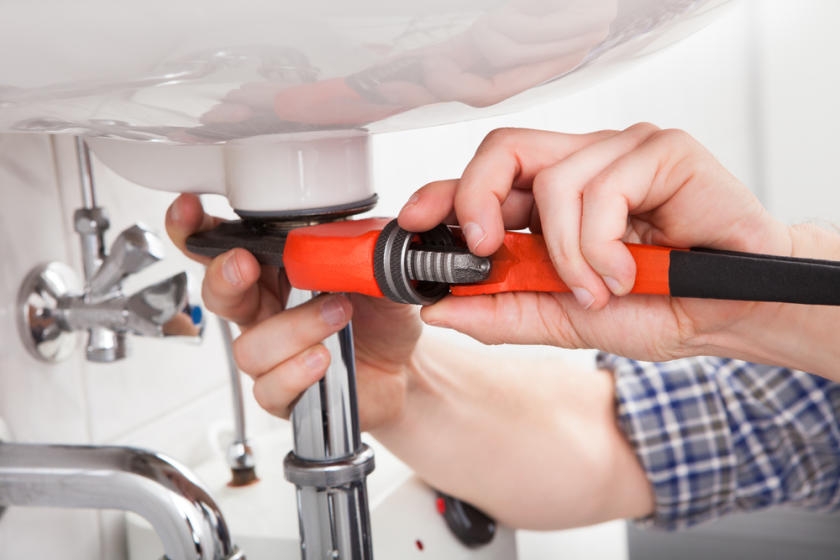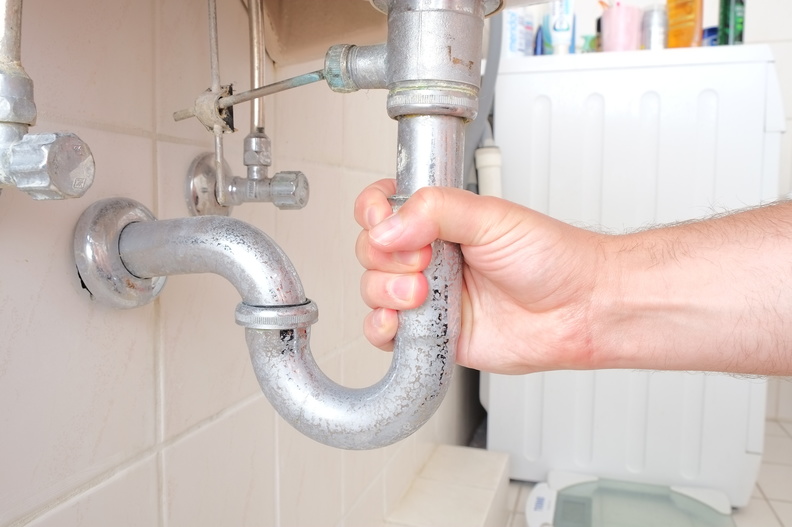Important Emergency Plumbing Fixes to Follow Until Support Arrives
Important Emergency Plumbing Fixes to Follow Until Support Arrives
Blog Article
Nearly everybody seems to have his or her own thinking about Plumbing Emergencies: Tips on What To Do Before.

Pipes emergency situations can strike any time, creating stress and anxiety and prospective damages to your home. Whether it's a burst pipe, a blocked drain, or a leaky faucet, knowing how to take care of the circumstance up until a professional plumbing professional gets here can conserve you from additional problems. This short article provides essential emergency pipes ideas to assist you reduce damages and gain back control during a plumbing situation.
Switch off the Water System
The initial step in any plumbing emergency situation is to shut off the water. For local problems, such as a leaking tap or commode, shut off the valve near the component. When it comes to a major leak or ruptured pipeline, locate your home's major water shut-off shutoff and turn it off instantly. Recognizing the place of these valves ahead of time can conserve important time throughout an emergency situation.
Shut down Your Hot Water Heater
In certain emergency situations, such as a ruptured pipe, it's important to turn off your water heater. This protects against getting too hot or damage to the device when water stops moving. Shut off the power supply to the water heater (electrical or gas) and let it cool to prevent potential threats.
Briefly Quit a Ruptured Pipe
A ruptured pipe can bring about considerable water damages in minutes. To minimize the concern:
Call a professional plumbing professional instantly to resolve the issue completely.
Have an Emergency Pipes Kit
Prepare a fundamental pipes emergency package to handle small concerns efficiently. Your package should consist of:
Having these tools accessible can make a significant difference in your capacity to manage emergencies.
Unclog Drains Pipes Safely.
A blocked drainpipe can be a frustrating and untidy problem. Below's how to tackle it:.
If these techniques do not function, stay clear of using excessive force, as it may aggravate the obstruction.
Take Care Of Overflowing Toilets.
An overruning commode can cause immediate chaos. Right here's what you ought to do:.
Address Little Leakages with Short-term Repairs.
Small leaks can quickly become substantial troubles if left uncontrolled. Make use of these momentary repairs up until expert assistance arrives:.
While these repairs aren't long-term, they can help decrease water loss and damages.
Deal With Frozen Pipes Meticulously.
In cooler climates, icy pipes are a common emergency situation. If you think a frozen pipeline:.
Know When to Call a Professional.
While quick fixes can aid temporarily, particular pipes issues call for instant specialist interest. Call a plumber if:.
Promptly calling a professional makes sure the issue is fixed correctly and stops more problems.
Protect against Further Damages.
Taking quick action to decrease damage can conserve you money and time in the long run. Below's how:.
Conclusion.
Plumbing emergencies can be frustrating, yet with the right understanding and devices, you can take care of the situation efficiently till aid arrives. By turning off the water system, resolving tiny leaks, and using short-term repairs, you can decrease damages and keep your home safe. Remember, these suggestions are momentary remedies; constantly consult a licensed plumbing to deal with the source of the issue. Prep work and fast reasoning are your ideal allies in any kind of pipes emergency.
8 Helpful Tips for Managing Plumbing Emergencies at Home
If your plumbing system hasn’t failed once, wait for it because almost everyone has a story to tell. Sometimes, it could be simple emergencies such as a leaking pipe, a blocked cistern, or even a big burst pipe. In situations like this, you need to have some handy tips to save you some money and from possible damages.
Take care of minor issues early.
Sometimes, you could have avoided an emergency by taking proactive measures while it was still early. Some major plumbing emergencies can be a result of an ignored minor issue. We recommend that you have items like plumbing tapes and other related items. A plumbing tape can allow you to manage minor leaks before the plumber arrives.
Cut off the water supply.
This tip is essential in almost any type of leakage problem. For problems like minor leakages in the toilet or kitchen, turn off the supply that takes water to the affected pipes. If the leakage is a major pipe, you must shut off the supply valve to the entire building. This will help you avoid flooding your home and neighbors if you share a flat.
Know your plumbing system
Folks typically move into a new apartment without understanding the water supply around the building. This can prove disastrous if a water emergency arises and the plumber is far away. The previous tip will prove useless if you don’t practice this one. More importantly, know where your water shut-off valve is located – you’ll need that knowledge to prevent potential home floods.
Have some common handy tools
There are lots of plumbing emergencies that you can handle without hiring a plumber. That’s why you must keep some tools available always. Some tools that you can use to fix simple plumbing emergencies easily include plumbing tapes, screwdrivers, thread seal tapes, plungers, pliers, tape measures, and rubber gloves.
Insulate your pipes from cold
You’ll save yourself from many plumbing expenses if you protect your water pipes from the cold. This is because of the harmful effects that cold weather can have on your pipes. During winter, your pipes can burst from being overly expected to freezing temperatures. So, make sure insulators are there to keep the pipes working correctly.
Avoid practices that will clog your toilet.
Many people indulge in practices that can damage the plumbing system of the entire building. One of these is when they use their toilet to dispose-off garbage. They flush all kinds of things, such as paper towels, bandages, hairs, female sanitary products, etc., down the toilet. This will block your toilet in the long run, incurring unnecessary expenditures. Dump such waste in the trash instead.
Check your dials regularly.
Sometimes, there could be leakages in your home without noticing them in time. So, constantly monitor your water meter dial. If the dial is reading when there is nobody using water, this is an indicator that there is leaking. Check for leaks immediately. Call a plumber as soon as possible if you can’t find any.
https://www.constructionplacements.com/8-helpful-tips-for-managing-plumbing-emergencies-at-home/

I was made aware of that report about Expert Tips for Emergency Plumbing Repairs from someone on a different web page. Sharing is good. Helping people is fun. Thanks for going through it.
Call Report this page